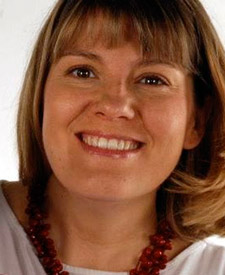Research examines difficulties faced by first-time mothers and premature babies
Posted Thursday 11 July 2013
Having a baby brings a whole set of new challenges for the first-time mother - both delightful and nerve wracking. Of course, it is always helpful if the birth of the child has gone according to plan.
But seven per cent of all newborns in the United Kingdom are premature. So when the unexpected happens, and first-time mothers deliver a premature baby, their expectations fly out of the window. Very often, these mothers have not had time to attend NCT classes and are cut off from other mothers' networks. Instead, they are visiting a fragile baby in intensive care and wondering how, and if, life will ever become ‘normal' again. In hospital, there is much support for mother and child; but when the mothers take their baby home they encounter new challenges and stresses. The psychological impact of exposing a premature baby to a crowded bus, a busy supermarket or even a park can be traumatic.

"In the unit mothers feel protected and it is difficult for them to appreciate the impact of the environment outside the hospital once they are caring for their discharged baby," Silvia said. "All their ideas about breastfeeding cafes, buggies and outings might go out the window. For example, the baby might have oxygen support and the mother would need to take an oxygen cylinder when they went out of the home. How do you manage that in a challenging environment like London?"
The project marks a departure for Silvia from her original work in sustainable urban regeneration and was prompted by personal experience. After discussions with medical staff about health care and spaces, she put forward a research proposal for some cross-cutting medical and social research which has now received funding (£15,800) from the Department of Perinatal Imaging and Health at King's College London.
"I am expecting to hear how the first-time mothers with preterm babies negotiate the environment" said Silvia." For example, that they walk rather than use the bus or tube; whether they attend playgroups; or choose parks that appear more suitable for vulnerable babies.
"This work should offer a different understanding of the urban environment and hopefully inform planning policies in the boroughs. For instance, maybe a park works better because of its design, a reassuring cafe or a quiet garden. It is all about well being and what might be preventing a child from getting the best start in life."
Silvia is the project's chief investigator. She will be working with Professor David Edwards at King's College London; and, from Guy's and St Thomas' Hospital Foundation Trust, with consultant neonatologists Dr Anthony Kaiser and Dr Hammad Khan (who developed the web app), and Aisling Phillips, sister and manager of the neonatal outreach team.